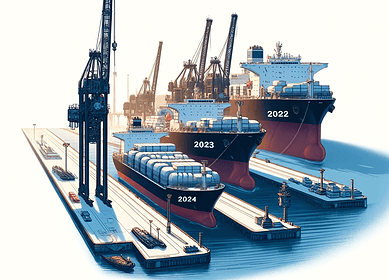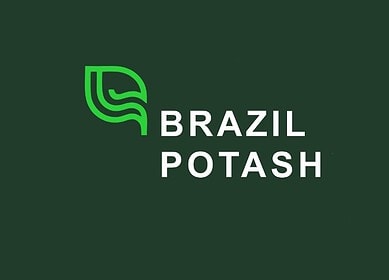Friday’s Insider: Brazil — one of the leading world importers

Over the past decade, Brazil’s fertilizer import landscape has seen significant growth, driven by the country’s booming agricultural sector and its reliance on imported fertilizers, including nitrogen, phosphorus, and potassium. In 2014, Brazil imported roughly 25 million tonnes of fertilizers, a figure that surged to 40 million tonnes by 2023, marking a 60% increase. This growth is largely attributed to Brazil’s status as one of the world’s top producers of soybeans, corn, and sugarcane, crops that require significant inputs of these essential nutrients.
Brazil relies heavily on imported potassium, nitrogen, and phosphorus, as its domestic production of these nutrients is insufficient to meet the demands of its vast agricultural lands. Companies like Mosaic, Nutrien, and Yara International are key players in supplying these vital inputs. Nutrien, for example, has increased its supply of nitrogen-based fertilizers, while Mosaic has expanded its phosphate operations to meet Brazil’s growing needs. More than 95% of Brazil’s potassium requirements are imported, mainly from Canada, Russia, and Belarus, making potassium one of the most crucial and vulnerable fertilizers in Brazil’s supply chain.
Nitrogen, which is essential for plant growth, and phosphorus, which supports root development and crop quality, have also been in high demand. Urea, a primary source of nitrogen, has experienced significant price fluctuations over the past few years. In 2022, the price of urea skyrocketed to over $900 per tonne, compared to just $300 per tonne in 2020. This price hike has placed immense pressure on Brazilian farmers, who are highly sensitive to input costs, and forced companies like Cargill and Louis Dreyfus to adjust their procurement strategies to cope with rising prices.
Geopolitical events such as Russia’s invasion of Ukraine in 2022 further disrupted the global fertilizer market, particularly for nitrogen and potassium. Russia, a major supplier of both, saw its exports curtailed due to sanctions and logistical challenges. This has prompted Brazil to diversify its sources of fertilizer imports. Morocco, for instance, has become a key supplier of phosphate, with OCP Group strengthening its position in the Brazilian market.
In response to the vulnerabilities posed by such heavy reliance on imports, Brazil launched the National Fertilizer Plan in 2022, aiming to reduce its dependence on foreign fertilizers by 25% by 2050. The plan focuses on increasing domestic production, particularly of nitrogen and phosphorus, and promoting the use of alternative fertilizer technologies to enhance sustainability. However, even with these efforts, Brazil remains deeply dependent on imports, especially for potassium.
In 2023, Brazil imported approximately 38 million tonnes of fertilizers, with potassium chloride accounting for a significant portion. Potassium is particularly important for Brazil’s extensive soybean and corn crops, and as global prices fluctuate, the country faces the challenge of securing stable supplies amid international market disruptions. The country’s heavy reliance on imports from politically unstable regions like Russia and Belarus has raised concerns about long-term supply security.
Companies like Amaggi, one of Brazil’s largest soybean producers, and Raízen, a leader in bioenergy, have adapted to these market dynamics by diversifying their fertilizer sources. Raízen, for instance, has also been exploring bio-based fertilizers to reduce its reliance on imported mineral fertilizers, while Amaggi has expanded its supplier base to mitigate potential disruptions.
Brazil’s fertilizer import operations are highly sophisticated, with major ports like Santos and Paranaguá handling large volumes of imported fertilizers. In September 2024 alone, over 1.2 million tonnes of fertilizers were lined up for discharge at Brazilian ports, highlighting the country’s growing appetite for these essential inputs.
While Brazil’s fertilizer imports have risen dramatically over the past decade, the country faces significant challenges due to its heavy reliance on imported nitrogen, phosphorus, and potassium. Geopolitical risks and price volatility will continue to shape Brazil’s fertilizer market, but initiatives like the National Fertilizer Plan and the diversification of suppliers offer a path forward as Brazil strives to secure its agricultural productivity in the coming years.
————
About the Author of “Friday’s Insider”: Ilya Motorygin is the co-founder of GG-Trading and brings 30 years of experience to the fertilizer industry. Renowned for his comprehensive problem-solving skills, Ilya expertly manages deals from inception to completion, overseeing aspects such as financing, supply chains, and logistics.
Enjoyed this story?
Every Monday, our subscribers get their hands on a digest of the most trending agriculture news. You can join them too!
















Discussion0 comments